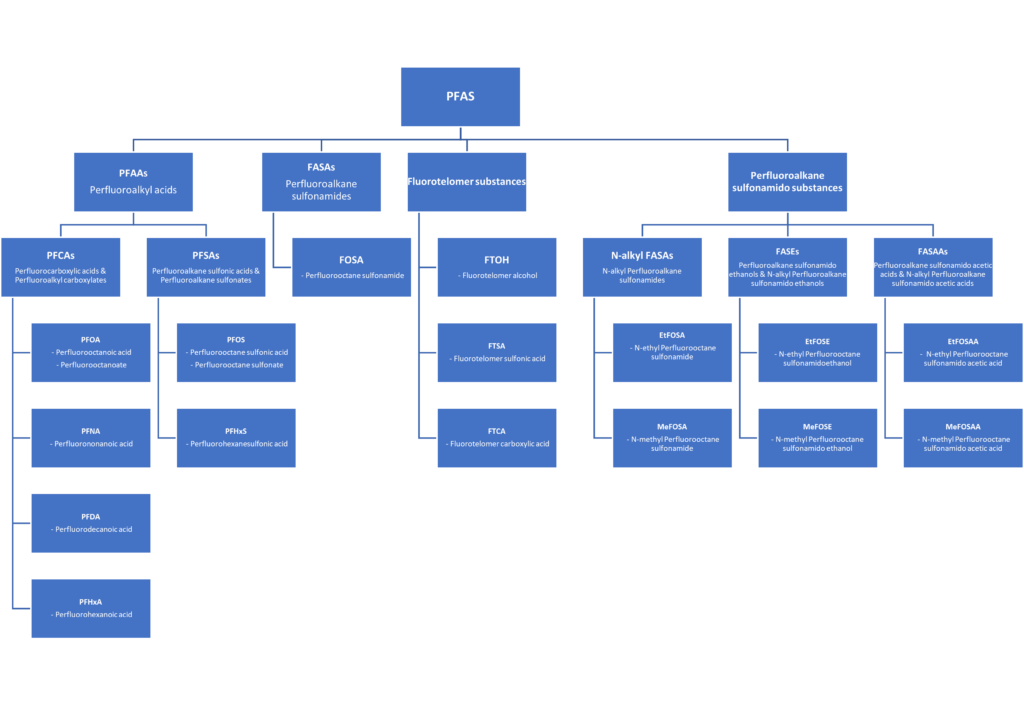UPDATE: The Maine Board of Pesticide Control has now set up a dedicated portal for submission of additional CSFs to ensure a secure method of transmitting these documents. Registrants should no longer email CSFs to Maine. Any CSF that was previously emailed to Maine does not need be resubmitted. In the below article, bolded red text indicates updated language from the original post.
PFAS regulation has been a heavy topic of conversation in the chemical industry over the past few years due to its status as a “forever chemical” along with emerging toxicology data indicating accumulation of this chemical may have harmful effects on living organisms and the environment. In response, significant new regulations and strategies are being implemented by EPA, FDA, and state agencies.
While both EPA and FDA have made efforts to work with manufacturers to reduce the use and distribution of PFAS, these programs have mostly been voluntary and focused on long-chained PFAS. Due to the lack of sufficient federal regulation, many states have proposed and enacted their own legislation to control exposure to PFAS. The State of Maine has enacted several laws over the past year to address PFAS within the state. These laws carry additional requirements associated with products containing PFAS.
This article analyzes current and proposed PFAS regulations and their effect on companies selling products in the State of Maine. We will focus on upcoming requirements to assist with ensuring your products remain in compliance.
What is PFAS?
PFAS is an abbreviation for synthetic (man-made) chemicals known as Perfluoroalkyl and Polyfluoroalkyl Substances. PFAS contains at least one carbon-fluorine bond, which is one of the strongest and most stable bonds in chemistry. This lends to a long half-life, designating them as “forever chemicals” that bioaccumulate in organisms and buildup in the environment.
These substances can be found in thousands of products and packaging.
The most notable use of PFAS is to make non-stick and water-resistant coatings due to their ability to repel heat, water, and oil. PFAS is also found in cosmetics, fire-extinguishing foams, carpet, adhesives, and countless other products.

Why is PFAS a Concern?
PFAS has become a health concern, as it has been found to be a contaminant in drinking water, groundwater, soil, and air. Studies regarding the toxicological effects of PFAS bioaccumulation have shown reproductive and developmental effects, increased risk of certain cancers, immune system suppression, increased cholesterol levels, and other potential health effects.
Most recently, EPA has conducted a study on Leaching of PFAS in Fluorinated Packaging, demonstrating products packaged and/or stored in fluorinated HDPE containers can cause PFAS contamination through leaching. The study also indicated the PFAS contamination could worsen over time as the product sits in the container. Consequently, EPA has stated it “considers any level of PFAS to be potentially toxicologically significant”.
In response to preliminary data signifying the potential health effects of PFAS, we have seen many governing bodies make efforts to conduct further research and regulate human and environmental exposure to this chemistry.
PFAS Regulatory Landscape
PFAS is by no means a new issue in the U.S., as EPA, FDA, and many states have taken efforts for many years to reduce and regulate the use and contamination of PFAS in products.
Federal Efforts
In 2021, the Biden-Harris Administration announced its Plan to Combat PFAS Pollution in the United States. The plan involves efforts from various agencies, including FDA (expand testing of PFAS in the food supply), EPA’s (PFAS Roadmap that includes cross-program monitoring, research, mitigation, etc.), and DOD (cleanup of PFAS-contaminated areas).
FDA
- Revoked authorization of PFOA and PFOS (long-chained PFAS) in food packaging in 2016.
- Obtained agreement from manufacturers in 2020 to phase out 11 short-chained PFAS chemicals by 2024. Due to the properties of PFAS and wide range of uses in food packaging, cookware, and food processing, it is difficult for the FDA to completely remove PFAS from the food supply chain.
- Conducted studies on PFAS contamination, which showed leaching of PFAS into the food supplies from known contaminated areas, although FDA’s Total Diet Study found little to no detectible levels of PFAS in the general food supply. However, in 2022, FDA conducted studies on the seafood supply chain and found higher levels of PFAS in seafood than other foods.
EPA
- Created the PFOA Stewardship Program in 2006, which is a voluntary program where the agency collaborated with eight major manufacturers to limit use of PFOA (long-chained PFAS) in products.
- In October 2021, EPA’s PFAS Council issued its 3-year plan to research and address PFAS. This plan promises to analyze the effect of PFAS on the consumer and propose rulemaking to further limit the exposure of PFAS to U.S. citizens. Since enacting the plan in 2021, EPA has taken many actions to limit consumer exposure to PFAS including:
- Proposing to designate PFOA and PFOS hazardous substances under the Comprehensive Environmental Response, Compensation, and Liability Act (CERCLA)
- Proposing rulemaking to remove exemptions and exclusions from TSCA reporting
- Releasing four drinking water health advisories for PFAS
- Developing a national testing strategy that will require PFAS manufacturers to provide EPA with toxicity data
- Completing its study on Leaching of PFAS in Fluorinated Packaging
- Removing 12 PFAS substances from the current list of inert ingredients approved for use in pesticides. While no actively registered products contain any of these 12 chemicals, this ruling by EPA is an important step towards ensuring their use remains restricted from future pesticide products
SRC will continue to monitor PFAS rulemaking and update our clients on upcoming deadlines and public comment opportunities.
State Efforts
Though the federal plan is in progress, lack of current federal regulation has led to a large number of U.S. states enacting their own regulations and legislation to address PFAS within their state.
In February 2022, Safer States’ Sarah Doll analyzed present and proposed state PFAS legislation in the article 2022 Analysis of State Legislation on PFAS and other Toxic Chemicals, which highlights legislation and regulation that affects not only pesticide products, but any product or product packaging that may contain PFAS. Most recently, the State of California signed AB 2771 into law which prohibits the use of PFAS in cosmetics.
Most notably, the State of Maine has passed 3 bills further regulating the use of PFAS in products within the state:
- Maine Legislative Document 264 (LD-264)
- Maine Legislative Document 2019 (LD-2019)
- Maine Legislative Document 1503 (LD-1503)
Collectively, these laws require action by every registrant with pesticides registered in Maine and may require action by manufacturers selling any product into Maine.
Maine Law – LD-264
- Authorizes the Maine Board of Pesticides Control to amend its rules for pesticide registration, requiring manufacturers and distributors to provide affidavits for the formulation, storage, and packaging of pesticides.
- Requires the Board of Pesticides Control gather information, conduct a study, evaluate, and provide a report concerning fluorinated adjuvants. Two major requirements imposed on registrants from this legislation are PFAS Affidavit Questions and Formulation Review:
Affidavit Questions
(Required for each product during initial registration and each annual registration renewal, effective for 2023 registration period and beyond)
- Is the product stored, distributed or packaged in a fluorinated HDPE container? (Y/N answer)
- Does the product (including active & other ingredients) contain any intentionally added PFAS chemicals? (Y/N answer)
- Will this product ever be distributed in bulk tanks for redistribution? (Y/N answer)
Pesticide products will not be registered or renewed in the State of Maine for the 2023/2024 registration period if the affidavit questions have not been answered.
Formulation Review
Every registrant is required to submit a Confidential Statement of Formula (CSF) through an online portal for each registered product. Alternate CSF’s must be uploaded through a CSF Submission Portal on the Maine Board of Pesticides Control website.
Where an ingredient is a proprietary mixture, registrants must contact the supplier to submit the composition of the ingredient directly through the CSF Submission Portal. This includes fragrances and dyes where the registrant does not know their full composition.
Registrants of supplemental registrations that do not have access to the CSF must contact the basic registrant to submit the CSF through the CSF Submission Portal on their behalf. The below table illustrates the correct way to submit each type of CSF to the Maine Board of Pesticides Control.

The State of Maine will not renew products for the 2023/2024 registration period if CSF information has not been provided.
If SRC’s State Registration team manages your state renewal, we have already contacted your team and begun entering this information on your behalf. If SRC does not currently manage your product state registrations, please contact us for assistance in uploading your CSF through the Maine Portal and completing the required affidavit questions.
Maine Law – LD-2019
- Requires adjuvants to be registered as pesticides
- Prohibits the sale/distribution of pesticides contaminated with PFAS (any PFAS present in the product, or its components does not provide a specific characteristic, appearance, quality, or function)
- Prohibits sale/distribution of pesticides containing intentionally added PFAS as of 1/1/2030
- Title 38, section 1614, subsection 5, paragraph D defines “Intentionally added PFAS” as PFAS added to a product or one of its product components to provide a specific characteristic, appearance, or quality or to perform a specific function. “Intentionally added PFAS” also includes any degradation by-products of PFAS.
SRC recommends that, where possible, avoid packaging or storage of your product or ingredients in fluorinated containers at any point in the production process. The safest way to ensure there is no PFAS contamination in your product is to make sure it is never stored or packaged in any fluorinated containers.
It may be beneficial to consult your legal counsel when reviewing contracts and warranties with your suppliers to ensure you are protected from liability or product recalls resulting from PFAS contamination of materials provided by them.
Maine Law – LD-1503
- Effective 1/1/2023, manufacturers must submit written notification for products containing intentionally added PFAS to the Department of Environmental Protection which includes:
- Brief description of the product
- Purpose of each PFAS in the product, including any product components
- Identity (CAS Number) and concentration of each PFAS in the product (measured by commercially available analytical methods)
- Name & address of manufacturer
- Name, address, & phone of contact person for the manufacturer
Fees may be associated with notification review by the department. This law applies to ALL products, not just registered pesticides (food packaging products and products for which federal law preempts state authority are exempt).
- Prohibits the sale and distribution of carpets, rugs, and fabric treatments containing intentionally added PFAS effective 01/01/2023 (resale of used products is exempt).
- Prohibits the sale/distribution of any product containing intentionally added PFAS effective 1/1/2030, unless the Department of Environmental Protection has determined by rule that use of PFAS in the product is a currently unavoidable use (food packaging products, products for which federal law preempts state authority, and the resale of used products are exempt).
- “Currently unavoidable use” means a use of PFAS that the department has determined by rule under this section to be essential for health, safety, or the functioning of society and for which alternatives are not reasonably available.
SRC recommends that for all products, including pesticides, you contact raw materials, fragrances, dyes, and packaging suppliers to obtain attestation whether ingredients/components contain PFAS. If present, request supplier(s) state whether PFAS is intentionally added or if it is present due to contamination.
Please contact your SRC consultant for assistance or templated language for this outreach.
SRC also advises that anyone selling products in the state of Maine proactively review your product formulas and packaging for any intentionally added PFAS. Review whether alternative chemicals or packaging are available in cases where PFAS is intentionally added.
Contact SRC for assistance reformulating your product to remove PFAS or to help you make a justification that PFAS serves a “currently unavoidable use” in your product.
Information Security
Maine uses a Pega Systems cloud-based platform to host the CSF data entry portal. Pega is a Soc 2, Type 2 and ISO 27001 certified provider, with numerous other security certifications and attestations.
SRC is working with Maine to further understand the CSF upload and affidavit processes and will provide updates along with tips and tricks for efficiency as we work through compliance with these laws.
Overview
Key dates and actions associated with products affected by new Maine laws are outlined below. Please contact SRC with any questions about these requirements and how they affect your specific products.
Upcoming Maine Deadlines:
| Deadline | Products Affected | Requirement |
|---|---|---|
| December 31, 2022*
*Deadline for renewals for 2023 registration period and the initial registration of adjuvants.
|
Registered Pesticides (Including Adjuvants*)
*Effective April 28, 2022, all adjuvants must be registered prior to sale/distribution in Maine.
|
|
| January 1, 2023 | All Products |
|
| January 1, 2030 | All Products |
|
SRC’s Recommendation
This is not the end of the PFAS discussion, as we anticipate additional federal and state regulations in the future. SRC’s team of consultants recommends clients take the following actions towards product compliance:
- For All Products, Including Pesticides: Contact raw materials, fragrances, dyes, and packaging suppliers to obtain attestation whether ingredients/components contain PFAS. If present, request supplier(s) state whether PFAS is intentionally added or if it is present due to contamination.
- Please reach out to your SRC consultant for assistance or templated language for this outreach.
- Proactively review your product formulas and packaging for any intentionally added PFAS. Review whether alternative chemicals or packaging are available in cases where PFAS is intentionally added.
- Where possible, avoid packaging or storage of your product or ingredients in fluorinated containers at any point in the production process. The safest way to ensure there is no PFAS contamination in your product is to make sure it is never stored or packaged in any fluorinated containers.
- It may be beneficial to consult your legal counsel when reviewing contracts and warranties with your suppliers to ensure you are protected from liability or product recalls resulting from PFAS contamination of materials provided by your suppliers.
- For Pesticides Only: Provide CSF information to Maine through the online portal prior to the 12/31/2022 renewal deadline.
- If SRC’s State Registration team manages your state renewal, we have already contacted your team and begun entering this information on your behalf. If SRC does not currently manage your product state registrations, please contact us for assistance in uploading your CSF through the Maine Portal and completing the required affidavit questions.
Please contact your SRC Consultant for further information or assistance with this complex and quickly evolving issue.
 Jamie Venable
Jamie Venable
Senior Consultant
Posted: 10/04/2022
Updated 10/27/2022


